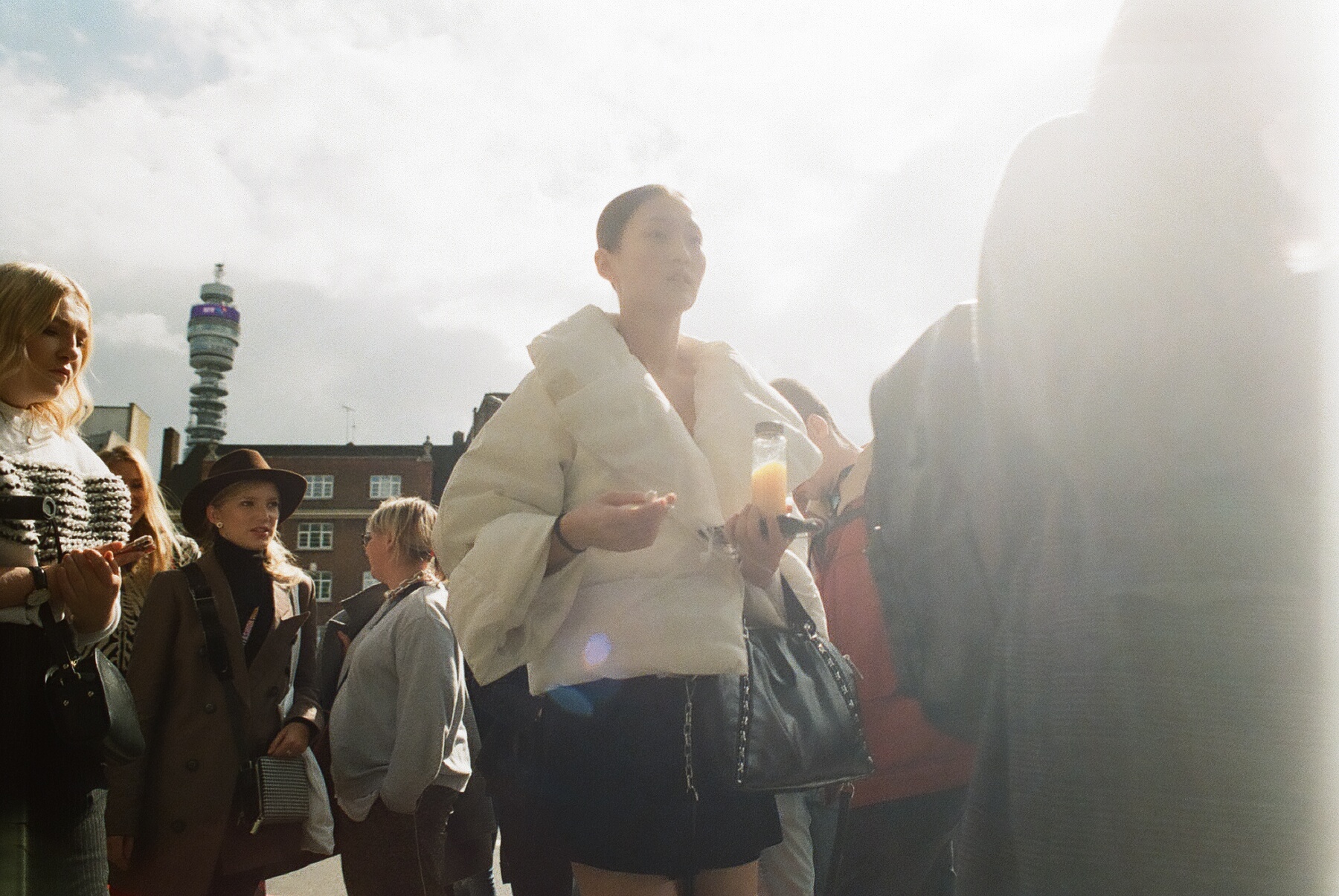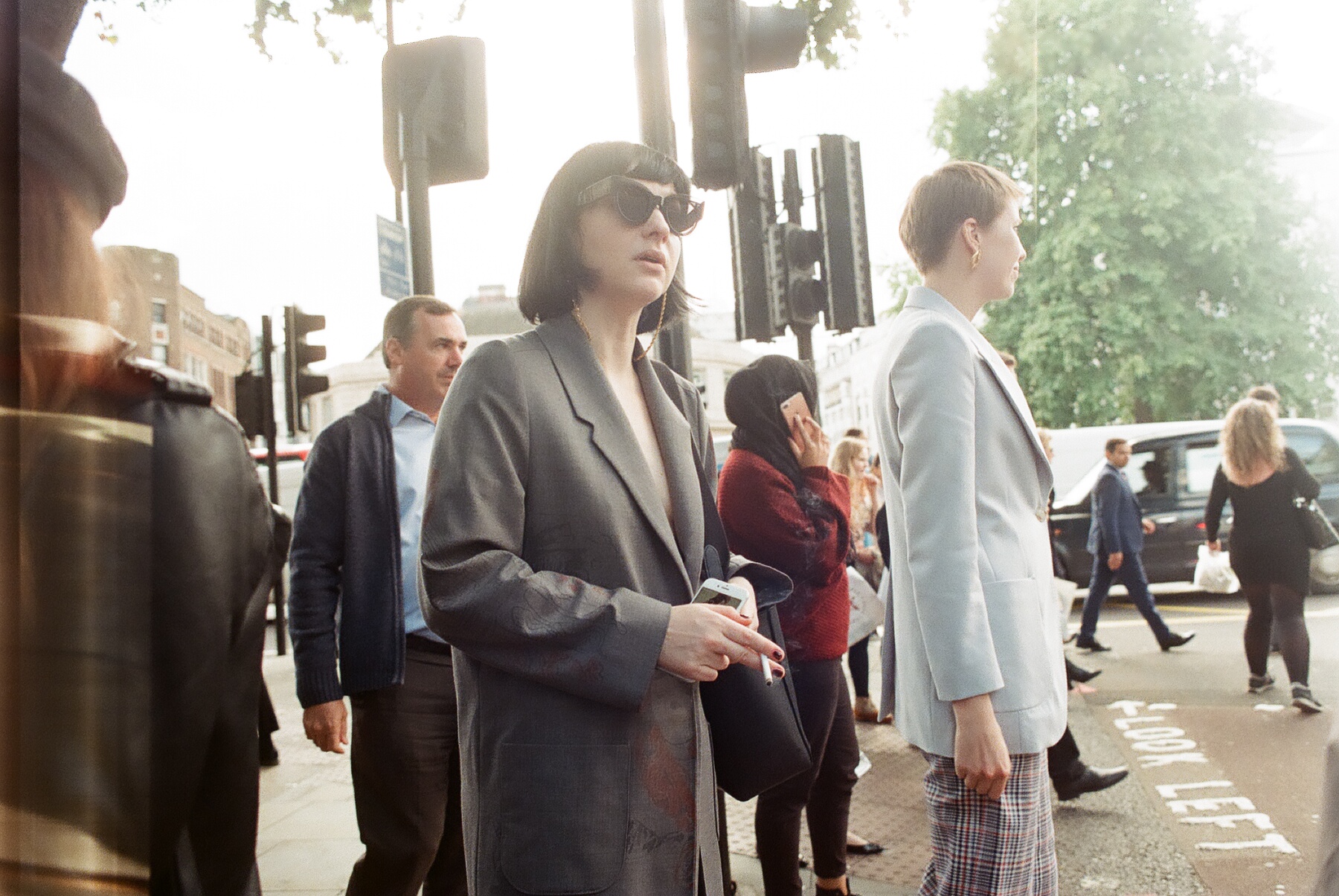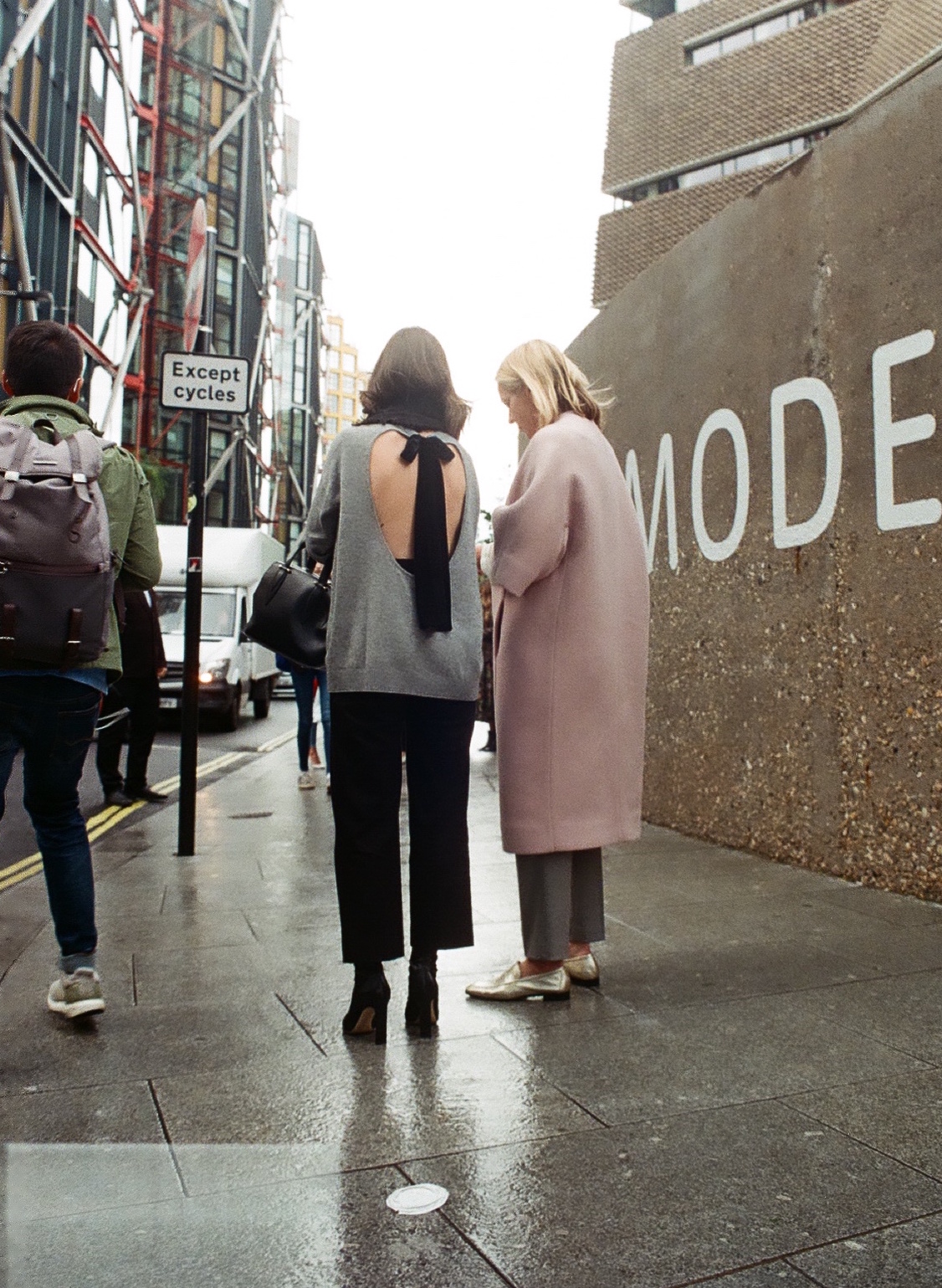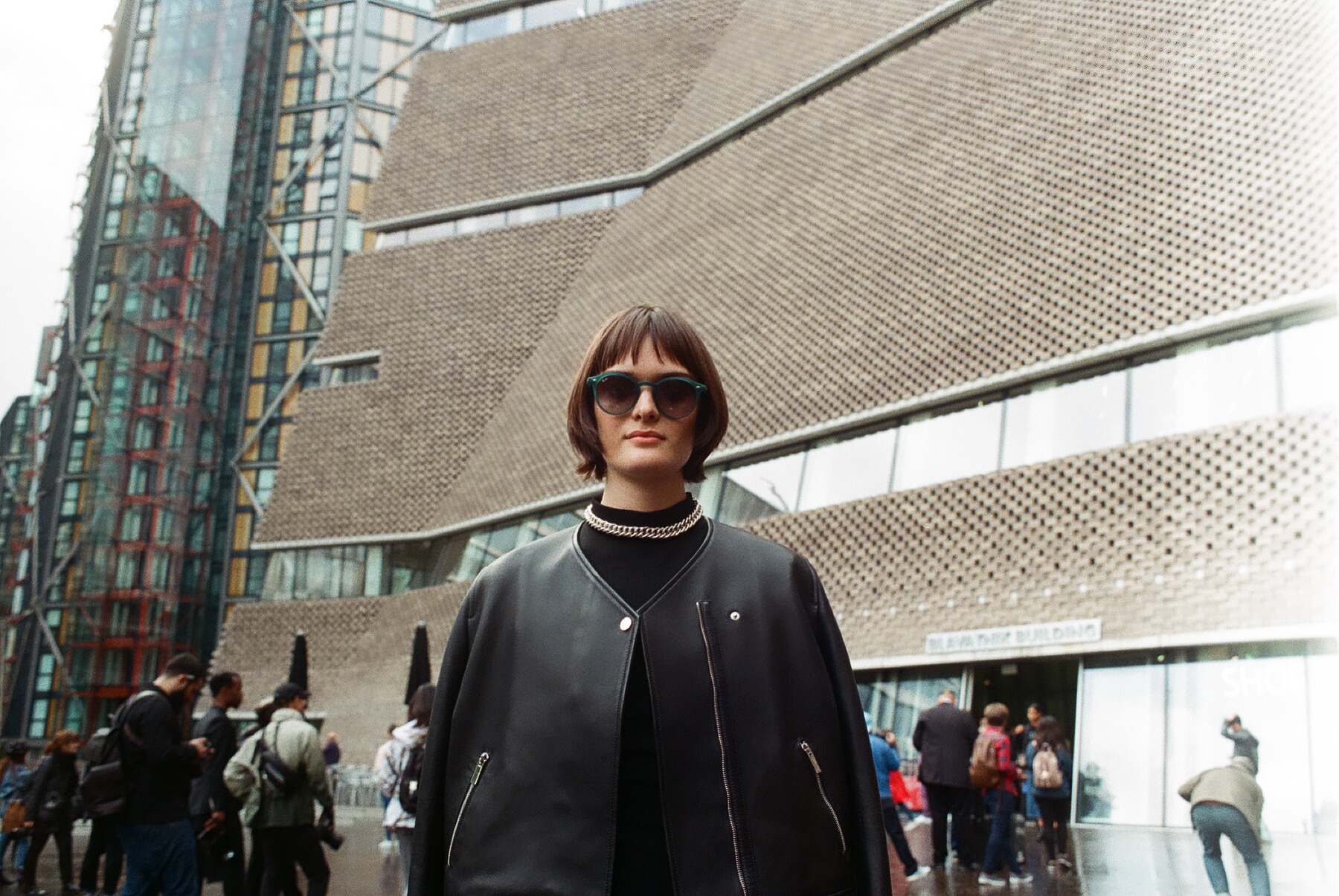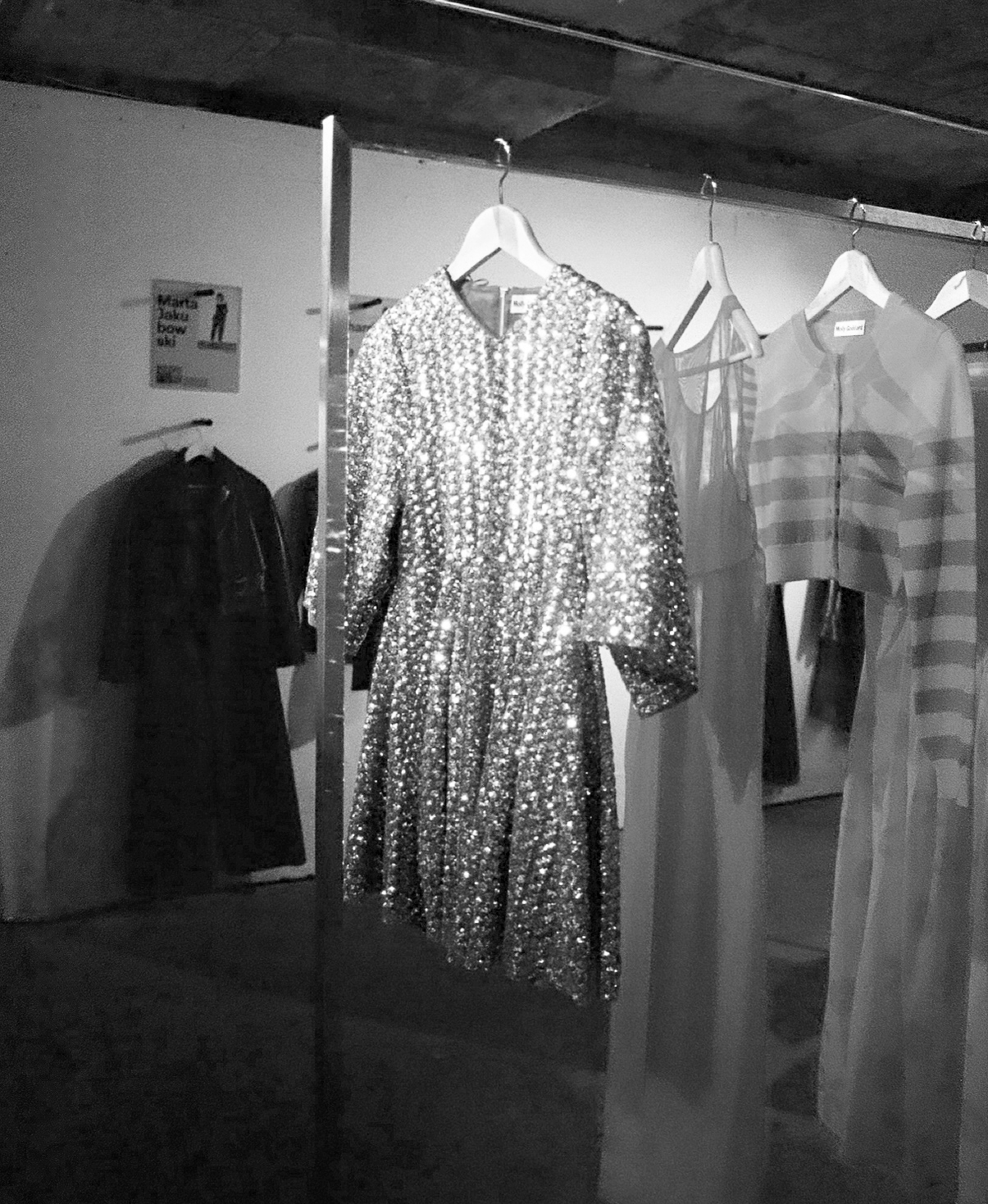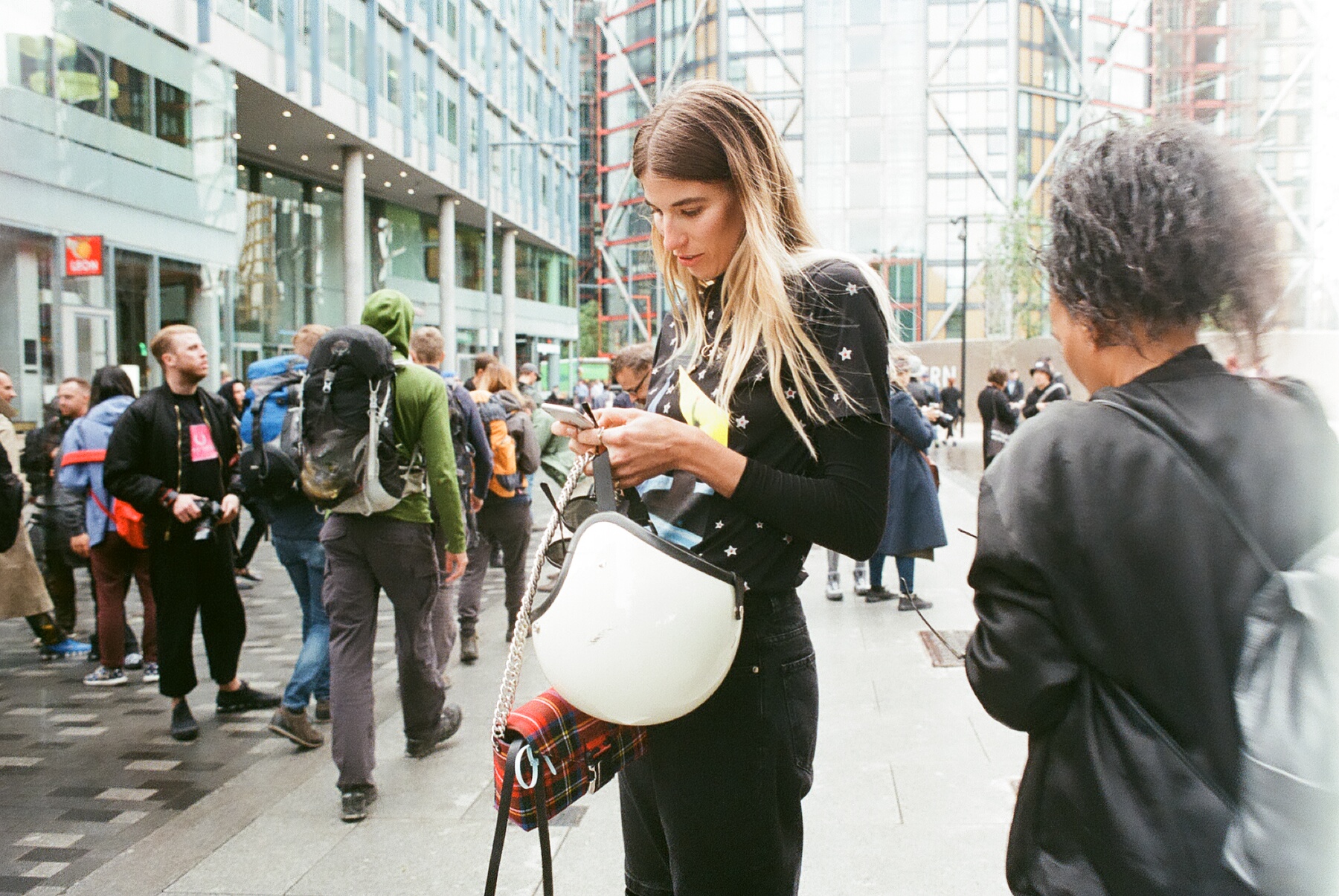Tia Glista
Interview by Olivia Clark
Photo by Tia Glista
Embodied spoke with Tia Glista (Gallatin 2020), the creator of Couturesque. At only 19, Glista has her own magazine and an internship at Vogue under her belt. The Canadian native is currently finishing up a semester at NYU London before heading off to Florence for the spring - all of which is being documented online as her mini fashion empire continues to flourish. We discuss fashion, taking risks and how age has been a driving theme in her career thus far.
Growing up outside Toronto, how did you get involved with fashion? What is the scene like there?
I think like anyone who grows up in the suburbs and is interested in fashion it feels like it’s not a possibility when you’re younger. Fashion is kind of a way that you go through identity formation, but suburban fashion is very cookie cutter. I never identified with what the other kids wore or looked like, so that’s why I became interested in fashion. I wanted to get more involved in the fashion scene in Toronto, but it’s a very small industry and it’s insular. A lot of people aren't willing to take risks or listen to new voices because of the fact that there are so few jobs. They're incredibly protective and territorial. I started Couturesque at the end of Grade 10 because there were so few opportunities for internships and career growth in Toronto so I thought I would do it on my own. In some ways the lack of a fashion market allowed me to be more independent instead of relying on someone else to teach me everything. I think I grew really quickly because I had to be self-taught.
Back to Couturesque for a second… You created your online magazine when you were fifteen “out of a desire to carve out a more empowering space for young people in the fashion community.” You already touched on it a little, but do you want to elaborate more on the inspirations behind it?
I’ve always loved writing and I actually started a magazine for girls when I was in third grade. That was where my interest in writing and the editorial landscape came from. However, it was much further along in my adolescence that I delved into Couturesque. I became interested in the fashion community, but I felt so much of the fashion content geared towards young people was incredibly condescending and superficial. I didn't feel like I was benefiting from it. I actually felt like it was making me feel poorly about myself. In Teen Vogue back then, it was all articles like “21 Ways To Look Like Kylie Jenner!” I didn't feel like it helped me advance in my career or become a well-rounded creative person. Instead, it was making me feel like I had to look a certain way. I was frustrated with the the idea that that is the kind of content that young people want to read, so that’s why I decided to create something for people like me.
So flash forward and you’re now almost 20! How has your online content evolved since starting Couturesque and coming to NYC?
In general, Couturesque has evolved to focus on our voice more. When you’re young and starting out, there’s a tendency to absorb everything you’re seeing and think you need to do the same thing. Even though I wanted to distinguish ourselves by being a space by and for young creatives, I still felt a lot of pressure early on to fit into the mold of a typical online fashion space. Over time, we learned to cut out the fat and focus on what we’re good at and what we care about instead just looking at everyone else. There’s a great quotation: “Don’t try to be something for everyone; try and be everything for someone.” I think that’s a great way to think about having a multichannel platform. The more you spend time in a particular field, you graduate from the introductory, mainstream stuff into things that have more depth. As I became more familiar with alternative types of journalism, I was more willing of being critical to the industry. And I think that was helped as well by arriving at NYU because what I learned the most my freshman year was how to be a better critical thinker. It’s allowed me to have a more unique point of view on the fashion industry and not to just take everything at face value. Since coming to university, I’ve tried to bring what I’ve learned in the classroom to Couturesque.
So segueing now into your art… You’ve has grown tremendously over the past year, from delving into film photography, and creating Super 8 videos. What inspires you to explore these nostalgic mediums?
First of all, I’m really inspired by Gallatin’s interdisciplinary approach. I feel like I don't just have to be a writer; I can explore other sides of the industry. I am primarily interested in fashion media more than just clothes, so naturally that’s going to provoke an interest in photography. Secondly, I actually always wanted to be a filmmaker when I was younger. When I became interested in fashion I pushed that to the side, but I think there’s a really cool opportunity right now in the industry to experiment with both. In terms of film photography, that’s something that has been instilled in me from a young age because my dad is an amazing photographer. For Christmas two years ago, he bought my brother and I each a roll of black and white 35mm film and we got to take his camera for a test drive. I felt really connected to it. I used to shy away from photography because I’m not a very technical person; I like to do things more instinctually. I like that with an old camera there’s only so much you can control manually and you’re leaving an element of it up to nature, which I think is really cool. I found a Super 8 at an antique in upstate New York in May. It was $10 so I thought I’d try it out. I really like the pastiche and campiness that you get from Super 8. I hope to do more with it in the future when I study at NYU Florence in the spring and make more fashion films to fuse all of my interests.
How do you approach tackling such large issues at Couturesque, such as feminism and agism?
The nature of being by and for young people is something that we’ve seen grow tremendously in the last few years. I think that’s really revolutionary because for so long adolescence was viewed through the lens of adulthood, and often it was not relatable. I think it’s really cool to see that shift in dynamic. I’m glad my website gets to be a part of that because all my staff are in college or high school so it’s authentic to our point of view as young people. When we first launched, I was hesitant about being open about us being young because I didn’t think people would take us seriously, but then I was advised by some people in the industry that that’s what makes us stand out. Over the years, we’ve embraced that much more by looking at what’s going on in fashion or the world and writing about how it affects us as young people. In terms of feminism, it’s something I'm deeply passionate about. It’s really wonderful to use writing to connect with people who are likeminded. When I’m writing articles, I love bridging the gap between women who love fashion and those who are passionate about feminism because I think for a long time those things were deemed as mutually exclusive. We’re at a watershed moment right now. The conversation around feminism and gender identity has never been this visible before and so no matter what industry you’re in, it’s important to address these topics.
Earlier this year, you interned for a stylist at Vogue (and went to the Met Gala!). What did you learn from that experience as a young person in a corporate environment?
The main thing that I felt fortunate about was having an eye into that space. It’s such a titanic organization. I got to see projects go from concepts to photographs in the magazine, so it was interesting to follow the regimented process to get there. As for personal skills, I learned the importance of developing self-confidence because in an environment like Vogue that’s cutthroat, it’s necessary to be confident in how you talk to people and in all the work you do. It was a great exercise in learning to put myself out there with people who were intimidating.
You are currently studying abroad in Europe. How do issues prevalent to your New York community/ identity translate abroad? If at all?
I’ve been really inspired by the publications here in Britain. I think they have a great history of subcultures and people willing to take creative risks. One of my favorite magazines is i-D and I got to meet some people who work at there to discuss who they make their publication tick. It was incredibly inspiring to see how open the British fashion industry is to young people. By virtue of being another year older and taking another set of Gallatin classes, I have the opportunity to continue to be curious and be educated about different people and perspectives.
As someone involved in fashion journalism, what are your thoughts for the future of this industry as our generation comes to power? I know you had a lot to say about Teen Vogue’s move to a digital-only platform.
I think the perception that it’s the fault of the decline of print is a mistake because there are a lot of publications that are speaking to a younger demographic but still having success in their print publications. Over here in London, Dazed is huge and on every newsstand. It’s a magazine primarily geared towards young people and it talks a lot about pertinent issues. The idea that young people don’t read print and that’s why it fails is naive and blames the demographic instead of the business learning to adapt. Bigger publications like Teen Vogue seem to be struggling not with modernizing but finding the audience they want to speak to.
Tia's Essentials
Can’t leave your apartment without: My NYU ID
Go-to song: Heart of Glass - Blondie
Publication you’re always reading: i-D and System Magazine
Subway train you’re always taking: The A train
Camera you're shooting with: Minolta X-700 from 1981


